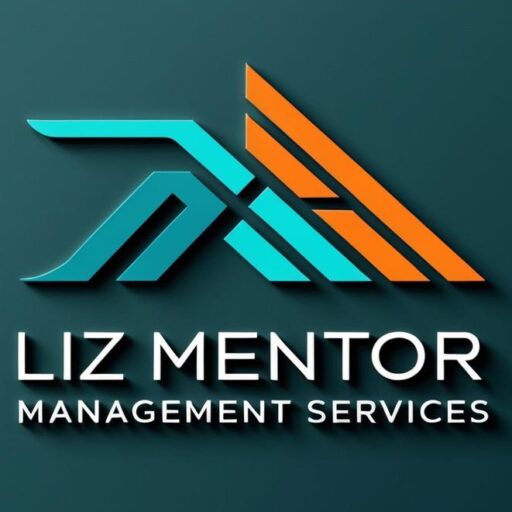Rethinking Skills Planning – Why Talent Is More Than Just Qualifications
Too often, companies define talent by what’s on paper. A certificate. A degree. A fancy credential hanging in the hallway. While qualifications can be important, especially in regulated industries, they’re just a fraction of what makes someone effective, adaptable, and valuable in a real workplace.
For small businesses, this approach can be particularly costly. You don’t have the luxury of a large team where gaps can hide in plain sight. Every hire, every team member, and every hour counts. Ignoring the potential of someone who doesn’t tick a box on a resume can mean overlooking a quiet genius — the person who can transform your processes, delight clients, or carry your culture forward.
The truth is that skills planning needs a rethink. It’s not just about qualifications. It’s about practical ability, learning potential, work ethic, soft skills, and real-world experience. The most effective small business leaders are those who see talent beyond the paper.
Here’s how to design a skills planning approach that identifies, grows, and retains the right kind of talent — the people who make a difference, diploma or no diploma.
The Three Layers of Real-World Skills
Traditional training and HR frameworks often focus heavily on technical skills — the “what” someone can do. But real-world performance depends on much more. Think of skills as having three layers:
Technical Skills – The What
These are the task-specific capabilities: using a POS system, running reports, coding, data entry, or operating machinery. Certificates, training programs, or past experience often cover this area. But technical skills alone won’t drive business success if the person can’t collaborate, communicate, or adapt.
Human Skills – The How
Soft skills are the glue that makes teams work. Communication, collaboration, leadership, problem-solving, and emotional intelligence fall into this category. These skills aren’t easily measured by a certificate, but they can make or break team performance. A technically brilliant person who cannot work with others may slow down or even derail progress.
Potential – The Future
Potential is the often-overlooked third layer. Curiosity, adaptability, willingness to learn, and the drive to grow determine how a person evolves with your business. Hiring purely for what exists today may solve immediate gaps, but hiring for potential builds resilience and flexibility for the future.
If your skills planning only measures formal qualifications, you’re missing up to two-thirds of what truly makes an employee valuable. In a small business, where versatility is crucial, these layers are not optional — they’re essential.
Spot Talent Where Others Don’t Look
Some of the highest-value contributors aren’t in leadership pipelines or talent pools flagged with certifications. They’re often hiding in plain sight, quietly making your business run better. Consider the following examples:
A cleaner who takes every opportunity to train new staff, ensuring consistent standards.
A driver who knows every shortcut in your delivery routes and shares process improvements freely.
A temporary admin who has already optimized a spreadsheet or automated a repetitive process.
These are the people who quietly carry institutional knowledge and practical skill. In small businesses, these individuals are gold. They might lack formal qualifications, but they show initiative, discipline, and applied intelligence.
The key is not to dismiss them because they don’t have a diploma. Your skills planning process should actively identify these contributors, support their growth, and structure opportunities for them to thrive.
Design Skills Planning Around Growth, Not Just Gaps
Traditional skills planning often starts with a list of deficiencies: “Who can’t do X? Who needs training in Y?” While this approach addresses immediate problems, it misses a powerful opportunity — building on existing growth.
Smart skills planning starts with curiosity: “Where is growth happening naturally, and how can we multiply it?” Look for patterns such as:
Employees who are constantly asking thoughtful questions.
Team members that others seek out for help or guidance.
Individuals learning on their own time, outside formal training programs.
Once you identify these growth points, design your skills plan to leverage them. For example, if a junior team member naturally mentors others, consider formalizing this role. Provide training that strengthens their mentoring capabilities. The ripple effect of investing in someone with momentum is far greater than patching a skills gap alone.
Think of this as a growth map — a dynamic approach that nurtures potential, encourages curiosity, and multiplies existing capabilities instead of only correcting deficiencies.
Make Room for the ‘STARS’ in Your Team
A powerful framework for small business talent is to recognize STARS employees — Skilled Through Alternative Routes. These are people who may not have the traditional credentials but bring extraordinary value through:
Experience gained in previous roles or industries.
Self-study, online courses, or continuous personal learning.
Informal work, side hustles, or community leadership.
Real-world problem-solving skills that certificates cannot capture.
STARS employees often combine discipline, creativity, and learning agility. They are resilient and adaptable, which makes them ideal for small businesses where roles are fluid, and responsibilities evolve quickly.
For example, consider a small café hiring a manager without a formal hospitality diploma. They may have run multiple pop-up events, led a food truck, or managed a small catering business. Their experience in real-world, high-pressure environments might make them far more capable than someone with a certificate but no practical exposure. Recognize them, nurture their growth, and provide pathways for development — you’ll be building loyalty and capability simultaneously.
Practical Tools for Tracking Skills
One of the challenges of skills planning is measurement. You don’t want to drown in paperwork, but you also need clarity. A practical, simple format works best.
Create a skills tracking sheet with columns for:
Employee name
Role or function
Key strengths
Skills to develop
Development method
Timeline
Here’s an example:
| Employee | Role | Key Strengths | Skills to Develop | Development Method | Timeline |
|---|---|---|---|---|---|
| Sipho | Stock Controller | Attention to detail, numeracy | System use, SOP writing | Shadowing + checklist + 1-hour workshop | 6 weeks |
Update this quarterly and review informally with employees. The goal isn’t bureaucracy — it’s intentional documentation of strengths, potential, and development paths.
For small businesses, this approach ensures you retain knowledge, plan promotions strategically, and support learning without overwhelming your HR processes.
Real-World Examples in Small Business Context
1. A Tech Startup:
A small software company noticed one junior developer consistently solved bugs faster than senior staff, even though they lacked formal qualifications. By formalizing a mentorship role and providing structured training, the company multiplied the developer’s impact, increased team efficiency, and boosted morale.
2. A Retail Boutique:
An assistant manager without a degree was instrumental in training seasonal staff. Recognizing this, the owner invested in leadership coaching, creating a clear growth trajectory. Result: reduced turnover, better customer service, and a stronger team culture.
3. A Community Café:
A barista had side experience catering events. The owner asked them to lead pop-up workshops, which brought in new customers and strengthened the brand. All without a formal qualification, but with high practical value.
These examples highlight a key principle: qualifications are helpful, but applied skills, learning agility, and initiative often drive results faster and more reliably.
Why Small Businesses Must Rethink Skills
The modern small business environment is fast, unpredictable, and resource-constrained. Hiring purely for certificates is a luxury few can afford. Skills planning must go beyond the traditional checklist. It must account for:
Practical ability: Can they get the work done, right here, right now?
Learning potential: Will they adapt and grow as the business evolves?
Soft skills: Can they work well with the team and clients?
Work ethic: Do they consistently show up, contribute, and follow through?
Experience: What have they done outside formal education that demonstrates capability?
Investing in these areas ensures your small business is resilient, flexible, and able to scale effectively without missing hidden talent.
Final Thoughts
The best people don’t always have the right piece of paper. What they do have — and what makes them invaluable — is evidence: their work ethic, adaptability, and willingness to grow. Small businesses that recognize this can create teams that are more capable, more loyal, and more aligned with the company’s vision.
Rethinking skills planning is more than an HR task — it’s a strategic advantage. Look beyond certificates. Spot talent where others don’t. Design development around growth, not just gaps. Make room for STARS employees. And track skills in a practical, repeatable way.
When you plan for potential, not just paper, you build a team that grows with your business, solves problems creatively, and thrives in the face of change. That’s how small businesses win — not just in the market, but in building a culture that lasts.



